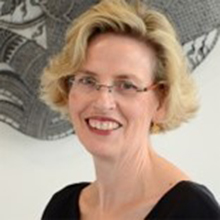I am delighted to join the Bangladesh Development Forum here today that showcases the country’s progress and shares this knowledge.
Bangladesh can be proud of its development achievements. Its people have shown remarkable resilience and creativity in overcoming poverty and setbacks. Millions have climbed the ladder to prosperity through hard work and persistence. This progress is expected to continue, with a robust growth projection, buoyed by strong domestic demand and strengthened exports.
Having successfully halved the number of people living in extreme poverty, creating more opportunities for all, and curtailing rapid population growth, Bangladesh is at the cusp of another transformation: that of a prosperous middle-income country with increasing opportunities and decreasing poverty. I see a bright and exciting future for its people. We also thank you for your generosity, in helping hundreds of thousands of displaced Rohingya people in their time of need.
I’m proud to say that Bangladesh and the World Bank Group, as the country’s largest development partner, share a close bond that dates to the earliest days after independence. Bangladesh is one of the largest recipients of the International Development Association – the World Bank’s fund for the poorest countries – with close to 27 billion dollars in financing over the past 45 years. Our relationship is intertwined, as we learn from and support one another.
Our engagements through IDA and with the International Finance Corporation – our private sector development arm – have increased significantly in the past five years. IDA’s commitment stands today at 10 billion dollars, up from $4 billion dollars at the end of 2012. And the committed portfolio for IFC has grown to almost $1.4 billion, up from $37 million dollars in 2012. Both IDA and IFC financing are expected to increase substantially in the coming years.
While there has been impressive progress, much remains to be done to give all of Bangladesh’s citizens the opportunities they deserve.
We see three areas that could push Bangladesh to the next level of development so it can better meet the needs and growing aspirations of its young population. First, as the country has correctly identified, it will be prudent for Bangladesh to address its infrastructure, energy, climate change, and urbanization bottlenecks.
These investments would help create more and better jobs for the millions of young Bangladeshis entering the job market every year.
This will help the country’s competitiveness and help it become a more attractive destination to invest and conduct business. At the same time, it will help deliver more opportunities and a higher quality of life.
Second, the country should build on its success in human development and continue to improve the quality of education, vocational training, as well as child nutrition and health services. This would help create the foundation needed for the young people of Bangladesh to take advantage of the jobs of tomorrow, and lead more healthy and productive lives.
And third, the country should continue to improve its institutions. The Seventh Five-Year Plan importantly emphasizes the need to strengthen governance, which includes building a strong civil service, judiciary, public banks, tax collection and Anti-Corruption Commission. We share Bangladesh’s stated objective of zero tolerance for corruption.
As Bangladesh continues to realize its ambitious development goals, the World Bank Group is committed to helping its people every step of the way. Through hard work, the image of Bangladesh as a country with widespread poverty could soon change to one of widespread prosperity, as it demonstrates its generosity to the world, and takes new paths to sustainable and equitable growth. Let’s build on these successes now, and end poverty in Bangladesh in our lifetime.


